Filter by

Ubiquitous Computing in the Workplace What Ethical Issues? An Interdisciplin…
This book provides an interdisciplinary collection of views on the ethical challenges and opportunities of workplaces in the Internet of things. Current developments within Ubiquitous computing (ubicomp) systems designed for the workplace are introduced and philosophical, organizational and socio-ethical considerations of ubicomp in workplaces are provided. Suggestions regarding the rules that …
- Edition
- -
- ISBN/ISSN
- 978-3-319-13452-9
- Collation
- 22 b/w illustrations
- Series Title
- -
- Call Number
- -

Trust and Incidents The Dynamic of Interpersonal Trust between Patients and …
Taking an interdisciplinary approach to conceptualise interpersonal trust between patients and medical practitioners, Katja Beitat introduces a unique model to describe the dynamics of trust building and deterioration with particular relevance to incidents in health care. Empirical findings from studies in Australia and Germany, the two systems focused on in this book, broadly support and expan…
- Edition
- -
- ISBN/ISSN
- 978-3-658-09670-0
- Collation
- 24 b/w illustrations
- Series Title
- -
- Call Number
- -
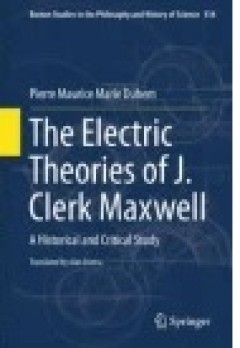
The Electric Theories of J. Clerk Maxwell
Furthermore, Duhem felt, in criticizing such a theory one must guard against narrowness of mind and petty corrections which would make one forget the merit of the inventor; and, more importantly, one must guard against the blind superstition which, for admiration of the author, would hide the serious defects of the work. He is not so great a genius that he surpasses the laws of reason. Pierr…
- Edition
- -
- ISBN/ISSN
- 978-3-319-18515-6
- Collation
- XV, 185
- Series Title
- Boston Studies in the Philosophy and History of Science
- Call Number
- -

The Educational Significance of Human and Non-Human Animal Interactions
The Educational Significance of Human and Non-Human Animal Interactions explores human animal/non-human animal interactions from different disciplinary perspectives, from education policy to philosophy of education and ecopedagogy. The authors refute the idea of anthropocentrism (the belief that human beings are the central or most significant species on the planet) through an ethical investiga…
- Edition
- -
- ISBN/ISSN
- 978-1-137-50525-5
- Collation
- XIII, 234
- Series Title
- -
- Call Number
- -
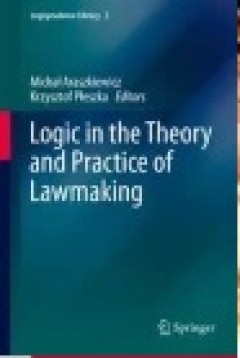
Logic in the Theory and Practice of Lawmaking
This book presents the current state of the art regarding the application of logical tools to the problems of theory and practice of lawmaking. It shows how contemporary logic may be useful in the analysis of legislation, legislative drafting and legal reasoning concerning different contexts of law making. Elaborations of the process of law making have variously emphasised its political, soc…
- Edition
- -
- ISBN/ISSN
- 978-3-319-19575-9
- Collation
- -
- Series Title
- -
- Call Number
- -

Fair Reflection of Society in Judicial Systems - A Comparative Study
This book addresses one central question: if justice is to be done in the name of the community, how far do the decision-makers need to reflect the community, either in their profile or in the opinions they espouse? Each contributor provides an answer on the basis of a careful analysis of the rules, assumptions and practices relating to their own national judicial system and legal culture. Writ…
- Edition
- -
- ISBN/ISSN
- 978-3-319-18485-2
- Collation
- 2 b/w illustrations
- Series Title
- -
- Call Number
- -
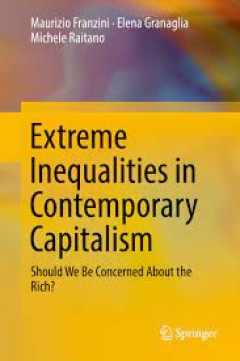
Extreme Inequalities in Contemporary Capitalism Should We Be Concerned About…
This book explores the mechanisms by which top incomes are achieved through work in today’s advanced economies and asks to what extent current extreme inequalities are compatible with widely held values of social justice. Reflecting on the heterogeneity of the working rich, the authors argue that very high earnings often result not from heightened competition induced by globalization but rath…
- Edition
- -
- ISBN/ISSN
- 978-3-319-28811-6
- Collation
- 13 b/w illustrations
- Series Title
- -
- Call Number
- -
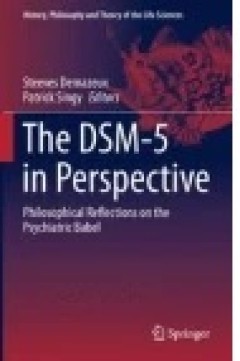
The DSM-5 in Perspective
For several decades the DSM has been nicknamed “The Psychiatric Bible.” This volume would like to suggest another biblical metaphor: the Tower of Babel. Altogether, the essays in this volume describe the DSM as an imperfect and unachievable monument – a monument that was originally built to celebrate the new unity of clinical psychiatric discourse, but that ended up creating, as a result …
- Edition
- -
- ISBN/ISSN
- 978-94-017-9765-8
- Collation
- XXIV, 238
- Series Title
- History, Philosophy and Theory of the Life Sciences
- Call Number
- -
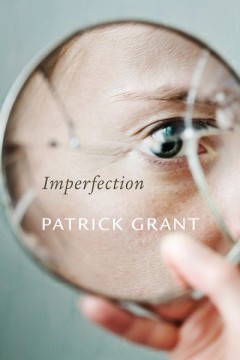
Imperfection
Known for his exploration of the relationship between Buddhism and violent ethnic conflict in modern Sri Lanka, as well as his contribution to the study of Northern Ireland and the complex relationships among religion, literature, and ethnicity, Grant provides the reader with an analysis of the widespread rise of religious extremism across the globe. Referencing Plato, Van Gogh, Jesus, and the …
- Edition
- -
- ISBN/ISSN
- 9781926836751.01
- Collation
- -
- Series Title
- Cultural Dialectics
- Call Number
- 240 pages
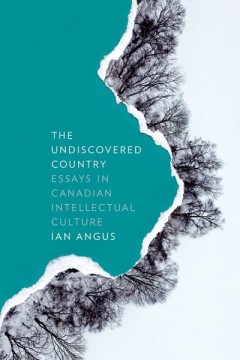
The Undiscovered Country Essays in Canadian Intellectual Culture
In this sequence of essays, Ian Angus engages with themes of identity, power, and the nation as they emerge in contemporary English Canadian philosophical thought, seeking to prepare the groundwork for a critical theory of neoliberal globalization. The essays are organized into three parts. The opening part offers a nuanced critique of the Hegelian confidence and progressivism that has come to …
- Edition
- -
- ISBN/ISSN
- 9781927356326.01
- Collation
- -
- Series Title
- Cultural Dialectics
- Call Number
- 306 pages
 Computer Science, Information & General Works
Computer Science, Information & General Works  Philosophy & Psychology
Philosophy & Psychology  Religion
Religion  Social Sciences
Social Sciences  Language
Language  Pure Science
Pure Science  Applied Sciences
Applied Sciences  Art & Recreation
Art & Recreation  Literature
Literature  History & Geography
History & Geography